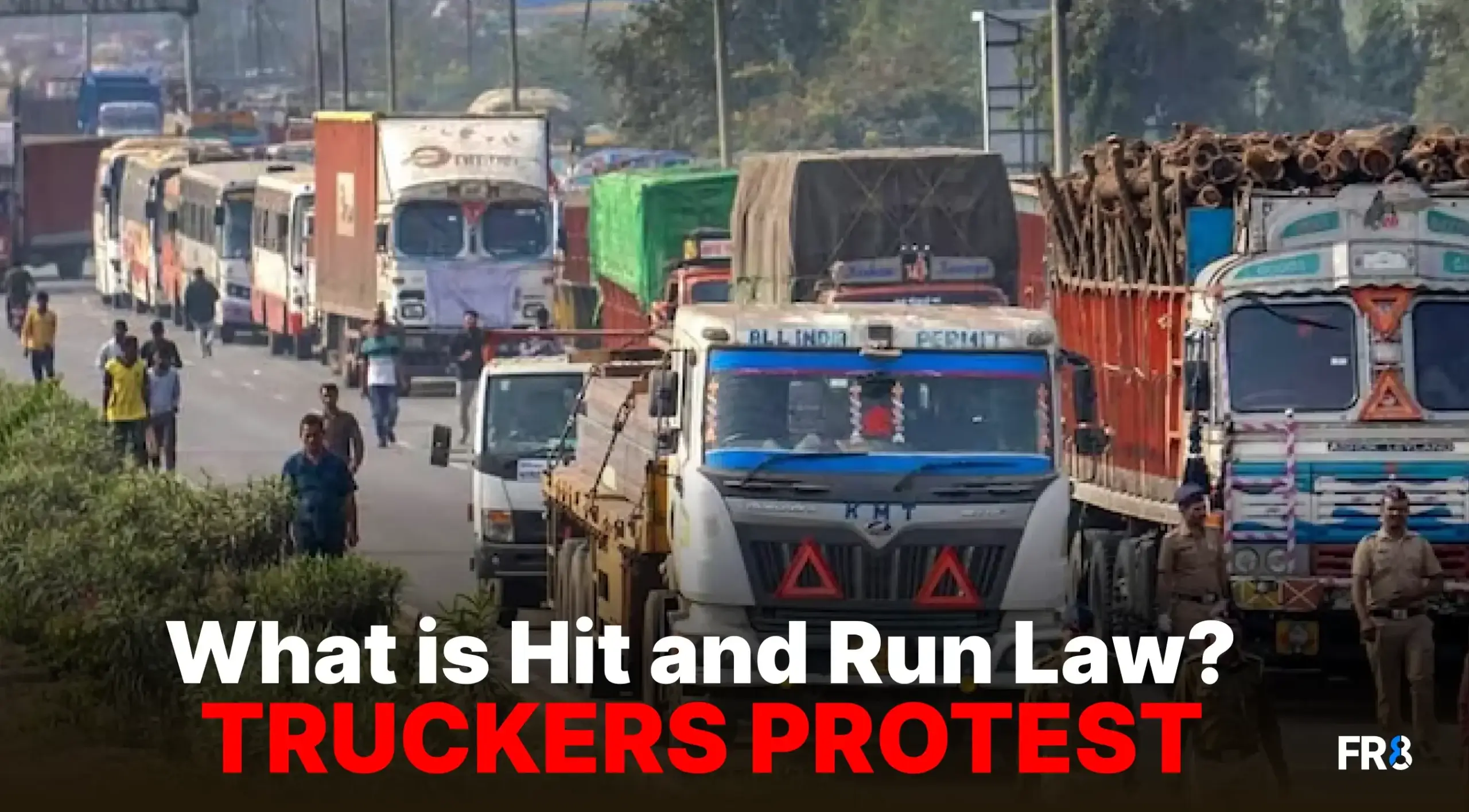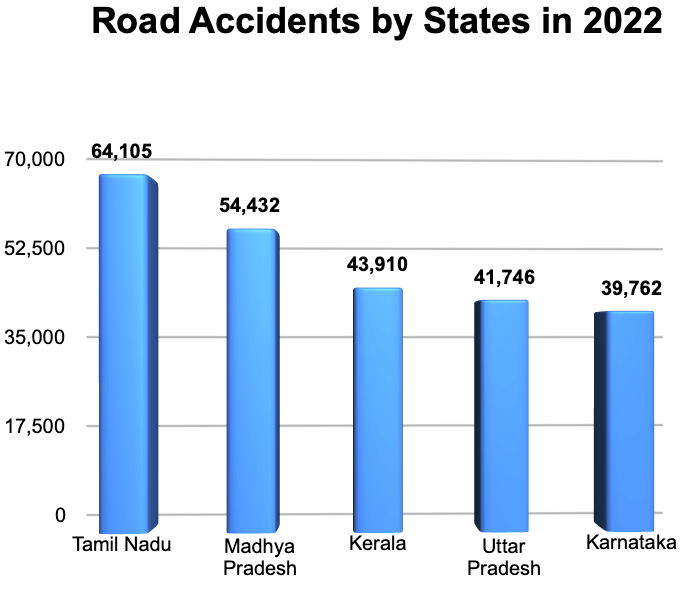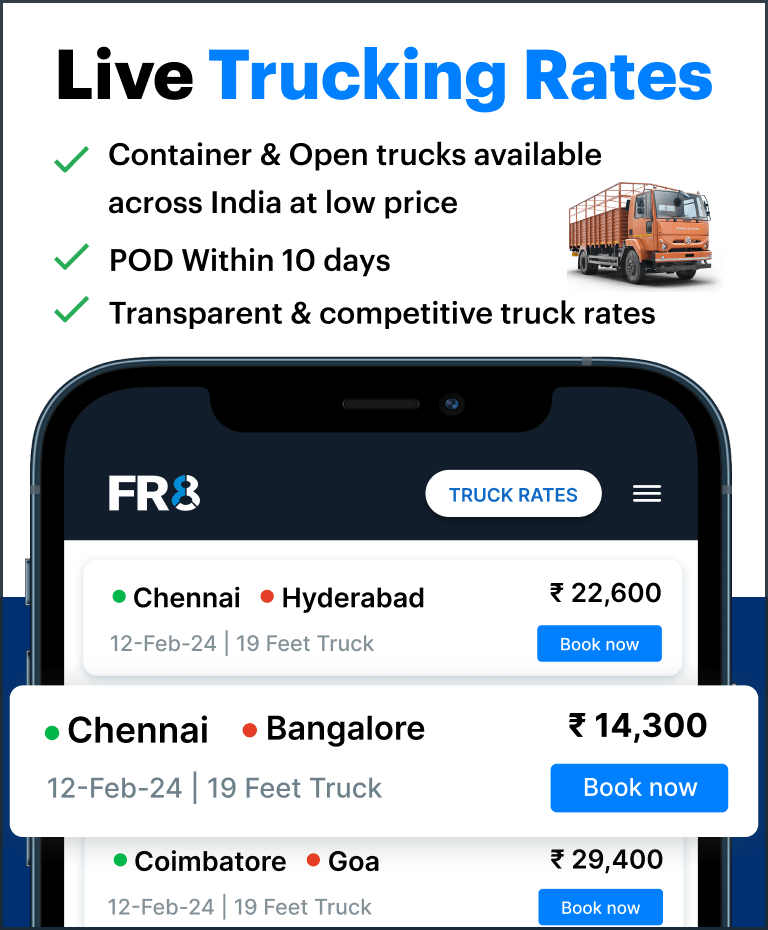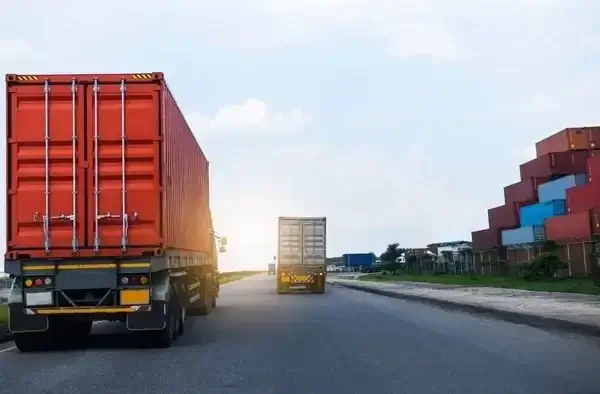
The hit and run protests in India was a recent event. The protest started in early January 2024 in response to the government introducing a hit and run new law with stricter punishments for hit and run accidents. Truck drivers felt that it is unfair and could discourage people from this profession, potentially worsening a driver shortage. They argued for a complete scrapping of the law, not just adjustments.
This new law is part of the Bharatiya Nyaya Sanhita (BNS), introduced in December 2023, a major reform aiming to replace the colonial-era Indian Penal Code (IPC). It introduced a total of 358 sections, with Section 106(2) specifically addressing hit and run cases.
This went so far that in Maharashtra, Chhattisgarh, West Bengal, and Punjab, truck drivers started hitting the streets.

Table of Contents
What is new Hit and Run Law?
Section 106 (2) of the Bharatiya Nyaya Sanhita (BNS) applies to drivers involved in accidents resulting in death caused by rash or negligent driving (not amounting to intentional murder).
If the driver flees the scene without reporting the accident to the police or a magistrate “soon after the incident,” they can be punished with a maximum sentence of 10 years in jail and a fine. The exact amount of the fine isn’t specified in the law.
Before this, hit and run cases were covered under the Motor Vehicles Act, 1988, and sections of the IPC like 279 (rash driving) and 304A (causing death by negligence). These carried lighter punishments — up to 2 years imprisonment or fine. The government felt these weren’t enough to deter offenders.
Why this Hit and Run New law?
- The Government aims to discourage hit and run accidents, a major issue in India, claiming thousands of lives annually.
- By increasing penalties, the law hopes to motivate drivers to stay at the scene, which can:
- Help injured victims receive timely medical attention.
- Allow for proper investigation and identification of the culprit.
In the year 2022, India reported more accidents and deaths on roads, with a 12% increase in accidents and a 9.4% increase in deaths. Global deaths from crashes went down by 5%. There’s about one death every three and a half minutes due to road accidents, totaling to about 19 deaths every hour.
When it comes to states, Tamil Nadu had the most road accidents with 64,105 reported cases followed by Madhya Pradesh, Kerala, Uttar Pradesh and Karnataka.

There were over 47,000 hit and run accidents in India, tragically resulting in more than 50,000 deaths according to the National Crime Records Bureau.
Since 2010, there has been a 5% decrease in global road traffic deaths, with an annual toll of 1.19 million. India leads the world in road accident deaths followed by China, United States, Indonesia and Russian Federation.

Why did truckers protest?
The All India Motor Transport Congress (AIMTC), the national truckers’ body, along with individual drivers and transporters, have raised several concerns regarding the new hit and run law that there is:
- Excessive Punishment: A 10-year jail term, especially for unavoidable accidents, is seen as harsh. What about situations where sudden mechanical failures occur, or drivers swerve to avoid pedestrians or animals darting across the road? Truckers argue that the law fails to distinguish between genuine accidents and intentional recklessness.
- Fear of Indian Roads: Indian roads are sometimes dangerous to drive. Truck drivers often risk their lives to deliver the goods. In that case, accidents are unavoidable.
- Financial Strain: Many truck drivers have low incomes, barely scraping by to support their families. The imprisonment and fine could cripple their livelihood.
The Impact of the Protest
The AIMTC (All India Motor Transport Congress) response was swift and impactful. They called for a nationwide strike, bringing India’s supply chains to a halt. Essential commodities like food, medicine, and fuel faced disruptions, highlighting the vital role truck drivers play in the nation’s economic engine. This forced the government to put the new hit and run law on hold for further discussions with stakeholders.
- In Maharashtra, the protests got serious with drivers blocking roads and throwing stones, hurting police and damaging vehicles. People also worried about running out of fuel.
- In Chhattisgarh, 12,000 private bus drivers went on strike, leaving many people stuck in cities and causing worry at gas stations.
- Similar things happened in West Bengal, Punjab, and Madhya Pradesh, where everything stopped working like normal.
Issues with the hit and run new law
- Unclear Reporting Procedure: The hit and run new law doesn’t specify how quickly a driver needs to report an accident.
- Potential for Misuse: Harsh penalties might discourage drivers from reporting accidents even if not at fault.
- Non-bailable Offense: Section 106(1) of the BNS deals with rash or negligent driving, punishable by up to five years in prison and a fine. Failing to report under 106(2) can lead to up to 10 years’ imprisonment. However, the law isn’t yet classified as non-bailable, meaning getting bail might be easier.
- Fine Amount: There’s no mention of a specific fine amount in the BNS for hit and run.
- Compensation vs. Fine: Compensation for victims (₹2 lakh for death, ₹50,000 for serious injuries) comes from a separate law (Motor Vehicles Act) and isn’t recoverable from the driver under the Bharatiya Nyaya Sanhita (BNS).
What’s next for truck drivers?
Facing this pushback, the government agreed to postpone implementing the hit and run new law and hold discussions with representatives of the trucking industry (stakeholders). The goal is to find a solution that improves road safety without unfairly targeting truck drivers. However, these talks are currently on hold.
The All India Motor Transport Congress, a powerful trucker organization, is adamant about the law’s complete cancellation, not just modifications. They even threaten a nationwide strike if the government enforces the law as is. The potential impact of such a strike is significant, as truckers believe it would cripple the country’s transportation system. With talks stalled, it remains to be seen if the government can address the truckers’ concerns and implement a workable solution.
Conclusion
Finally, our truck drivers’ and transporters’ protest has achieved justice, and the government has taken this into consideration. Mr. Halla Ji, the Secretary, mentioned that the hit and run new law will be put on hold until it is discussed with All India Motor Transport Congress.
For more updates you can refer this blog.

Yoga Laxmi
Sometimes English is just silly. That's what got me hooked on writing in the first place. Why on earth can't "grateful" be spelled "greatful"? Here's the thing, I love untangling the knots of language just as much as I love untangling the complexities of logistics. In my blog posts, I'll do both! No "greatful" mistakes here, just good info and a smooth journey through the world of shipping.








